The Best Multichannel eCommerce Software
We’ve evaluated the top multichannel eCommerce software to help retailers, wholesalers, and distributors streamline order management and optimize inventories across every sales channel.
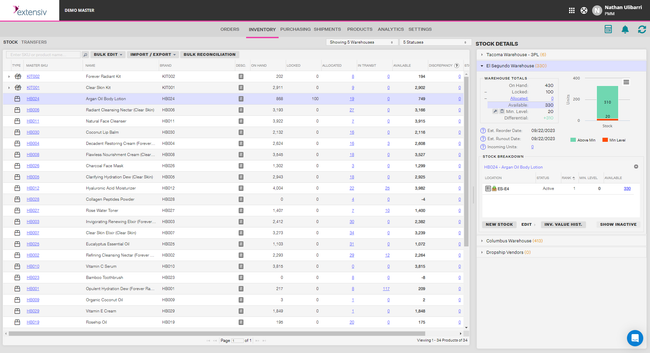
- Multi-warehouse inventory visibility
- Native warehousing mobile app
- Automated PO creation
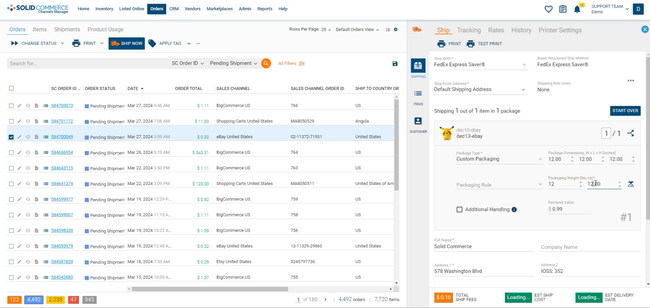
- Great listing management
- Strong sales connections
- Customizable dashboards
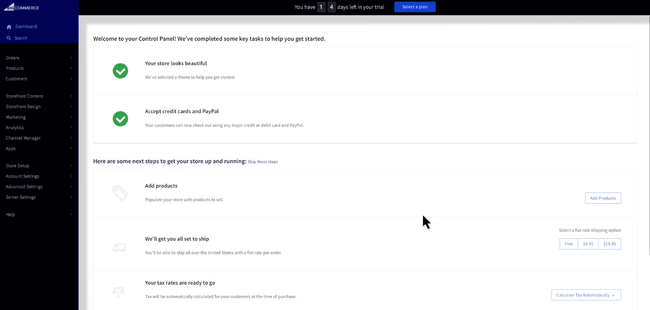
- Designed for big companies ($1M+)
- Payment gateways include PayPal, ApplePay, and Amazon
- Pre-built integrations with ERP and POS
Multi-channel eCommerce software is a tool that enables businesses to manage and sell products across multiple online platforms and marketplaces from a single interface. We used our advanced review methodology to evaluate the top multi-channel eCommerce solutions.
- Extensiv Order Management: Best Inventory Management
- Solid Commerce: Best Listing Management
- BigCommerce: Best for B2B and Wholesale
- Shopify: Best for Brick and Mortar Retailers
- Linnworks: Best for Amazon, Etsy, ebay
- Rithum: Best for Walmart, Target, and Large Retailers
- Ecwid by Lightspeed: Best for Social Media eCommerce
- TrueCommerce: Best Integration Options
Extensiv Order Management - Best Inventory Management
Extensiv Order Management, formerly Skubana, is a warehouse management software with strong inventory and order management. It integrates with leading eCommerce sales channels such as Amazon, eBay, Shopify, and Walmart. It also centralizes orders from each sales channel into a simple dashboard that lets brands pick, pack, and fulfill customers’ sales in one place.
Extensiv’s ability to track inventory in real-time across all warehouses and fulfillment centers is a huge plus for brands with products across multiple locations. You can ensure optimal stock levels by setting custom allocation quantities for every sales channel. When inventory dips below the minimum quantity, the system automatically adjusts the available inventory to protect against stockouts or overselling.
Although it has a strong multi-channel inventory solution, some users have found themselves overwhelmed by its many features and require time to learn the system fully. To combat this, Extensiv offers a wide range of resources, including training, guides, and webinars.
Explore our top picks for Inventory Management Software
Solid Commerce - Best Listing Management
Solid Commerce offers a strong product information management (PIM) module that gives you visibility into every listing. From a single unified dashboard, you can easily maintain product attributes and information like SKUs or ISBNs. Search for individual items from any channel, apply filters, and even organize by fields like manufacturer or storage location. It’s great for quickly finding the exact item you need—no more sifting through spreadsheets or jumping from different eCommerce platforms.
You can also seamlessly update your catalog in bulk or individually. So, whether you’re changing the overall price for a promotion or editing an individual description, Solid Commerce lets you do it efficiently. For more complex products, you can configure kit and bundle relationships. This links the group to the individual SKUs, so when a kit sells, inventory is automatically updated for the individuals, keeping stocks accurate.
Solid Commerce is best for mid to large-sized omnichannel merchants and brands looking to consolidate information and integrate processes. The multichannel operations management suite’s pricing starts at $300/month. That said, the price for your business will depend on the number of marketplaces, EDI, and vendors you have. Also, the AI-powered automated messaging “AutoReply” system is sold separately, which starts as a free service for up to 100 monthly conversations.
BigCommerce - Best for B2B and Wholesale
BigCommerce is a flexible eCommerce platform offering advanced features for both B2B and B2C eCommerce businesses. Its dedicated B2B edition stood out to us as the top option for wholesalers looking to scale and streamline their customer experience. BigCommerce allows businesses to create different customer accounts and assign specific pricing, promotions, and products for each account. The platform supports volume discounts, which incentivize customers to make larger purchases.
Also, BigCommerce allows sales representatives to create custom quotes for products and orders with negotiable pricing or significant variation based on product details. Sales reps can order on a customer’s behalf and provide personalized pricing tailored to each B2B customer. However, we found the platform’s pricing structure, which ties costs to sales volume, often leads to higher fees as businesses grow quickly.
BigCommerce also allows B2B customers to create custom shopping lists for their organization, simplifying the repurchase process. It offers a portal for customers to view and pay outstanding invoices directly online.
Shopify - Best for Brick and Mortar Retailers
Shopify’s easy-to-use online store builder integrates with leading sales channels such as Amazon, eBay, Walmart, and Google Shopping, making it a great option for omnichannel sellers. Small to medium brick-and-mortar businesses looking to sell products online can quickly establish an online presence using Shopify. It includes built-in marketing capabilities, including SEO tools and email marketing campaigns.
Additionally, Shopify syncs its online store with several existing POS software, including Square, Vend, and Lightspeed, allowing businesses to keep their existing software while expanding their customer base to the digital age. For retailers looking to enter multiple online sales channels, Shopify centralizes product information, allowing descriptions, pricing, and availability to update across all sales channels. For new stores, it even has its own POS software to make integration with its eCommerce platform even easier.
Although very large product catalogs with complex variations can make Shopify feel cumbersome or require additional custom development, we found that Shopify adept at helping small to medium-sized retailers sell their products outside the traditional four walls.
Linnworks - Best for Amazon, Etsy, ebay
Linnworks is a good platform for businesses selling products on over 100 online marketplaces, including Amazon, Etsy, and eBay. Businesses can even connect their existing website to Linnworks to manage product listings, inventory, and order fulfillment.
Linnworks provides a central hub for managing bulk product updates, allowing Amazon sellers to update product information, set pricing, and manage product variations without manually changing every listing. Etsy sellers who create custom or handmade products can avoid overselling them by tracking inventory across every channel in real time. eBay sellers can provide their buyers with real-time tracking updates by integrating with leading shipping carriers such as ShipBob, FedEx, UPS, DHL, and more.
While small businesses can benefit from Linnworks, it is particularly helpful for medium to large enterprises that handle a large volume of orders and stock. It best suits eCommerce sellers looking to scale without increasing their administrative workload.
Rithum - Best for Walmart, Target, and Large Retailers
We selected Rithum, formerly known as ChannelAdvisor, as our top pick for eCommerce brands looking to sell their products on large retail marketplaces such as Walmart, Target+, and others. It allows brands and suppliers to manage listings across multiple retailers, track inventory accurately, and fulfill online orders.
Rithum’s dynamic pricing tools enable suppliers to automatically adjust product prices based on market conditions, competition, or pre-defined rules such as the season or time of day. Automated stock management keeps inventory counts accurate across all sales channels. This is key for major retail platforms with a high volume of transactions, helping them avoid stockouts.
Brands can improve customer service by managing interactions through a centralized hub. It allows users to interact with customers from all major retailers on a single dashboard, enabling timely responses and improving brand reputation.
Ecwid by Lightspeed - Best for Social Media eCommerce
Ecwid by LightSpeed made our list because it syncs product catalogs across multiple social media platforms, including Facebook, Instagram, TikTok, Pinterest, and Snapchat. Ecwid helps drive traffic and sales from your existing social media presence through automated ad creation and product tagging to help target and retarget potential customers. It even connects with Google and Facebook analytics to track customer behavior and optimize ad performance.
In a study by SocialPilot, 87% of Instagram users take action after seeing a product or service on Instagram. Ecwid allows influencers and small businesses to monetize their following by selling directly on their social channels.
Finally, Ecwid makes managing orders across multiple social media platforms simple by offering a centralized inventory and order management platform. When a product is sold on one channel, it automatically updates across all channels. It also has a mobile app for adding new products, processing orders, and creating discount codes.
TrueCommerce - Best Integration Options
TrueCommerce features deep integrations with ERPs, warehouse management, and other backend business software. TrueCommerce connects existing ERP systems such as Acumatica, NetSuite, Sage, and SAP with online storefronts and marketplaces.
We found that many eCommerce companies already have inventory management or ERP solutions and may find switching those systems difficult or too costly. Using TrueCommerce, products are centralized across sales channels, and inventory management systems are updated in real-time. TrueCommerce helps avoid overselling and stocking out of products that are sold across multiple storefronts.
TrueCommerce also works with leading marketplaces such as Amazon, Walmart, and Wayfair, integrating custom API and EDI connections to ensure every order is received and processed correctly into existing technology.
What is Multichannel eCommerce Software?
Multichannel eCommerce software allows online stores to advertise their products and services over various websites, online marketplaces, and social media outlets. This solution allows for ad coordination between channels like Amazon, Twitter, Google, and more. Since Internet retailers depend on digital sales channels for business, multichannel software is necessary to engage with new audiences.
eCommerce stores can sell their goods on a variety of third-party platforms. Digital marketplace websites like Amazon allow users to search for products and buy without ever going directly to the eCommerce website. There are also social media platforms and comparison shopping engines (CSE) which do the same through advertisements. Track these site-specific engagements with multichannel eCommerce software.
Most eCommerce software allows for some multichannel marketing or sales. However, they tend to focus more on managing sales and inventory on a single website rather than on third-party platforms.
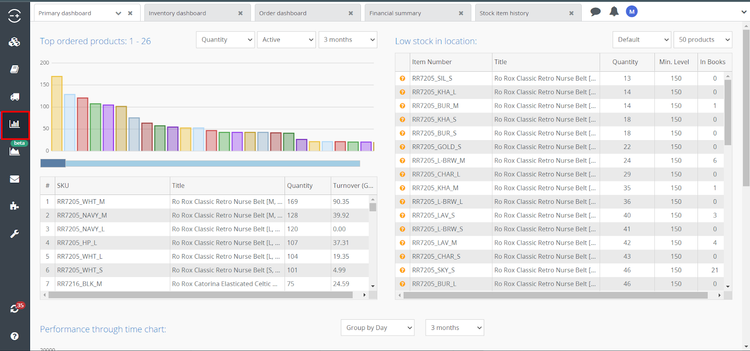
Key Features
- Multichannel Advertising: Create a cohesive ad campaign across multiple channels. Post products on digital marketplaces or on social media.
- Marketplace Posting: Sell products through digital marketplaces like Amazon and eBay.
- Product List Management: Control different product listings made on third-party platforms to ensure uniformity. Upload entire product catalogs with accurate product information, pricing, and shipping details.
- Order Processing: Automate order management online. Process sales from third-party platforms, adjust inventory and account for payment and shipping costs to begin order fulfillment.
- Inventory Management: Avoid overselling when advertising product listings on multiple platforms. Sync inventory for real-time updates from every marketplace.
- Social Media Engagement Analytics: See how many users engage with advertisements and product posts on different social media sites.
- Shopping Cart: Build a cart feature that is compatible with different CSE sites such as Google Shopping.
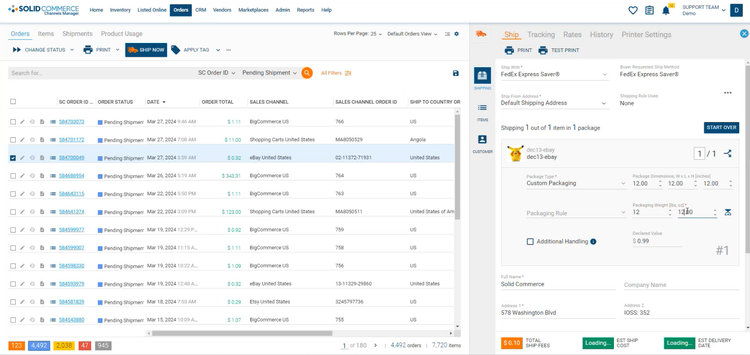
Primary Benefits
There are many benefits to promoting products across multiple sales channels:
Streamline Online Advertising
Advertising is essential for an online business. Avoid wasting time repeatedly making the same advertisement for different social media channels. With multichannel eCommerce solutions, a single ad is created, and the software handles the rest. Custom campaigns manage all the image sizing requirements for each channel.
Next, coordinate when the ads go out on each platform. Release them all at once or stagger them based on past audience engagement.
Target Different Demographics by Channel
Every social media platform has a different user base. A user on Twitter will not engage with an ad the same way someone on Facebook will. Use analytic solutions to review target demographics and customize ads by each platform. It may be surprising to learn about an emerging market trend that can used to advertise products more effectively.
Reach New Audiences through Social Sharing
A successful web store depends on obtaining new customers and retaining repeat sales from existing ones. Unlike brick-and-mortar storefronts, online sellers can’t rely on foot traffic to attract new shoppers. Loyal customers can share the products themselves, making it easy for something to go viral with just a click. Many eCommerce stores, through careful online engagements, have enjoyed increased sales thanks to viral advertising. Social sharing allows satisfied customers to market products for free.
Sell Products on Multiple Platforms
Many Internet users prefer to stick to the same social media sites for all their online shopping. By making products available across marketplace platforms, businesses can start selling directly to users even if the customer never visits the businesses’ online store.
Instead of making the same product post multiple times, multichannel systems provide a single point of entry for all items, which can be turned on or off at any point. This eliminates the need to spend hours creating duplicate product pages for each social media platform. One product listing can be created and multichannel software ensures it is posted on various marketplaces.
A multichannel listing allows for handling repricing, discounts, and sales specials from a single dashboard. Product information can be updated anytime without worrying about outdated information on the marketplace.
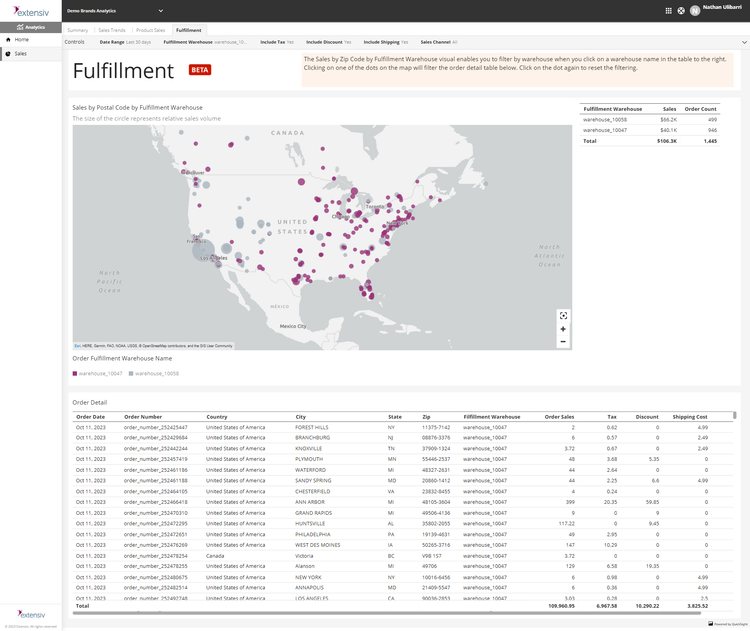
Track Engagement and Reviews on Social Media
Are users talking about your products online? Are they happy with your service? Are they critical? Multichannel software lets you see what users on different platforms are saying about your business.
Social media is a great opportunity to improve customer relations from user reviews. Consumers are now looking at reviews more than ever before committing to an online purchase. A lot of 1-star ratings can hurt your business. If someone has a poor experience ordering your product through another point-of-sale platform, you can make things right through your own media channels. Respond to reviews on other websites to show your commitment to above and beyond customer service.
Popular eCommerce Sales Channels
Multichannel software designed for compatibility with different online marketplaces, social media platforms, and Comparison Shopping Engines. The ones you need depend on what sort of audience you want to reach:
| Marketplaces | Social Media Platforms | Comparison Shopping Engines (CSE) |
|---|---|---|
| Amazon | Google Shopping | |
| eBay | Amazon Product Ads | |
| Walmart | Bing Products | |
| Shopify | Shopzilla | |
| Etsy | PriceGrabber | |
| Jet | YouTube | |
| Rakuten |
Pricing Guide
The starting price for subscription-based software per user is as low as $49/month or $410/year. Larger solutions offering more advanced capabilities will start at $495/month or $12,800/year and go up from there. This does not include setup fees for implementation and any available training. Most modern platforms no longer offer perpetual-based one-time purchase solutions as they update and change rapidly.
The cost of your eCommerce SaaS software will depend on the scale of your business. Smaller eCommerce stores can get away with limited software solutions. If you operate a boutique that only sells a limited number of products per sales period, you may only want a single application targeting Etsy users. If your eCommerce business is already making more than $1 million in revenue you’ll need a more comprehensive multichannel software.



























